Comprehensive Guide to Substance Abuse Treatment Programs for Couples
Substance abuse is a pervasive issue that affects both individuals and their families. When it comes to addiction, there are numerous treatment programs available to meet a wide range of needs and circumstances. Couples’ participation in rehabilitation programs is becoming increasingly popular and effective. Couples rehabs in Orange County take a unique approach, providing support systems that leverage the strength of relationships to promote recovery. This article investigates the various types of substance abuse treatment programs, with a particular emphasis on those that incorporate couples into the recovery process. Couples can make informed decisions about their journey to sobriety and long-term health if they understand the various options available.
Couples Rehabs Services 888-325-2454
Detoxification Programs
Detoxification programs are frequently the first step towards recovery from substance abuse. These programs are intended to safely manage the acute physical symptoms of withdrawal caused by stopping drug or alcohol use. Understanding the key elements of detoxification programs can help couples make informed decisions about embarking on their recovery journey together.
A. Definition and Purpose
Detoxification, commonly referred to as “detox,” is the process of eliminating toxic substances from the body. The primary purpose of a detox program is to manage withdrawal symptoms safely and comfortably. Withdrawal symptoms can vary widely depending on the substance used, the duration of use, and the user’s overall health. For couples seeking recovery, detoxification serves as a critical foundation, preparing both partners for the subsequent phases of treatment by stabilizing their physical condition.
B. Medical Supervision
One of the most crucial aspects of detoxification programs is medical supervision. Withdrawal from substances like alcohol, opioids, and benzodiazepines can be particularly dangerous and even life-threatening without proper medical oversight. In a detox program, healthcare professionals, including doctors, nurses, and addiction specialists, monitor patients 24/7. This continuous supervision ensures that any complications can be promptly addressed, and medications can be administered to alleviate severe withdrawal symptoms. For couples, undergoing detox together under medical supervision can provide mutual support and reassurance, knowing that they are in a safe environment.
C. Duration and Process
The duration of a detox program can vary depending on several factors, including the substance of abuse, the severity of the addiction, and the individual’s health. Typically, detox programs range from a few days to a couple of weeks. The process generally involves three stages: evaluation, stabilization, and preparation for treatment.
- Evaluation: During the evaluation stage, medical professionals conduct comprehensive assessments to understand the patient’s medical history, substance use patterns, and any co-occurring mental health conditions. For couples, this stage includes evaluating both partners’ needs to tailor the detox process accordingly.
- Stabilization: In the stabilization stage, the focus is on managing withdrawal symptoms and ensuring the patient is medically stable. Medications may be used to ease symptoms and prevent complications. Couples can support each other emotionally during this challenging phase, reinforcing their commitment to recovery.
- Preparation for Treatment: As detox concludes, the final stage involves preparing the patient for the next phase of treatment. This preparation includes creating a personalized treatment plan and providing information about inpatient or outpatient rehabilitation programs. For couples, this stage emphasizes planning for continued recovery together, whether they choose the same treatment facility or individual programs that cater to their specific needs.
Detoxification programs play a vital role in the recovery process by addressing the physical dependence on substances. For couples, experiencing detox together can strengthen their resolve and provide a shared foundation as they move forward to more intensive treatment options.
Inpatient Rehabilitation Programs
Inpatient rehabilitation programs are essential components of substance abuse treatment, providing a structured and immersive environment for those seeking recovery. These programs provide 24-hour care, ensuring that patients have constant access to medical and psychological support. Here, we look at the key components of inpatient rehabilitation programs and how they can be especially beneficial for couples undergoing treatment together.
A. 24/7 Care
One of the most significant benefits of inpatient rehabilitation programs is the availability of 24-hour care. Patients stay at the facility for the duration of their treatment, which can last anywhere from 28 days to several months, depending on the severity of their addiction and individual needs. This constant supervision reduces the risk of relapse and ensures that medical emergencies are addressed promptly. Couples benefit from the immersive environment because it allows them to continuously support one another, fostering a shared commitment to recovery.
B. Therapy and Counseling
Therapy and counseling form the backbone of inpatient rehabilitation programs. These services are designed to address both the psychological and emotional aspects of addiction. Patients participate in a variety of therapeutic modalities, including individual therapy, group therapy, and family therapy. Individual therapy sessions allow for personalized treatment plans, addressing the specific issues and triggers that contribute to substance abuse. Group therapy offers a sense of community and shared experience, which can be particularly encouraging for couples as they see others working towards similar goals.
C. Couples Therapy Integration
Couples therapy is an important component of some inpatient rehabilitation programs. Addiction frequently strains relationships, resulting in a cycle of blame, mistrust, and emotional distance. Couples therapy seeks to rebuild these relationships through communication, understanding, and mutual support. Therapists help couples identify unhealthy patterns and develop strategies for maintaining sobriety together. This collaborative approach not only strengthens the relationship, but also increases the chances of long-term recovery for both partners.
In summary, inpatient rehabilitation programs provide an intensive and supportive environment for those dealing with substance abuse. The combination of 24-hour care, comprehensive therapy, and couples therapy makes these programs an appealing option for partners who are committed to overcoming addiction together.

Outpatient Rehabilitation Programs
Individuals and couples seeking substance abuse treatment can benefit from outpatient rehabilitation programs, which are both flexible and accessible. Unlike inpatient programs, outpatient services allow participants to continue with their daily routines and responsibilities while receiving necessary support and therapy.
A. Flexibility and Accessibility
One of the primary benefits of outpatient rehabilitation programs is their flexibility. These programs are intended to accommodate people who have work, school, or family obligations that prevent them from attending a full-time residential program. Sessions are typically scheduled in the evenings or on weekends, allowing participants to attend without disrupting their daily lives. This flexibility is especially useful for couples who may have shared responsibilities, such as childcare or housework, that must be managed alongside their treatment.
B. Therapeutic Sessions
Outpatient rehabilitation programs offer a variety of therapeutic sessions aimed at addressing the psychological, emotional, and behavioral aspects of substance abuse. These sessions often include individual counseling, group therapy, and educational workshops. Individual counseling provides a private space for participants to explore personal challenges, set goals, and develop coping strategies. Group therapy sessions offer peer support and the opportunity to share experiences with others who are facing similar struggles. Educational workshops provide valuable information about addiction, relapse prevention, and healthy lifestyle choices.
For couples, specialized therapy sessions can be integrated into the outpatient program to address relationship dynamics and improve communication. These sessions focus on building a supportive partnership, fostering mutual understanding, and developing strategies to prevent relapse as a team.
C. Support Systems
Support systems are critical components of outpatient rehabilitation programs. These programs frequently include a variety of support mechanisms to help participants stay on track and maintain their commitment to recovery. This could include having access to support groups like 12-step programs or other peer-led groups that foster a sense of community and accountability. Furthermore, outpatient programs frequently provide aftercare planning and follow-up services to ensure that participants have the resources and support they require to maintain their recovery long-term.
For couples, having a robust support system can make a significant difference in their treatment outcomes. Couples rehabs often emphasize the importance of involving family members and close friends in the recovery process. By building a network of support, couples can strengthen their resolve and navigate the challenges of recovery together.
Types of Substance Abuse Treatment Programs at Couples Rehabs
Navigating the complex landscape of substance abuse treatment requires understanding the various programs available, especially when looking for options that accommodate couples. Each type of treatment provides distinct benefits and is tailored to specific needs and circumstances.
Detoxification programs serve as the critical first step in the recovery journey, providing medical supervision to safely manage withdrawal symptoms and prepare individuals for further treatment. These programs are essential for stabilizing patients and setting a solid foundation for long-term recovery.
Inpatient rehabilitation programs offer comprehensive, 24/7 care in a structured environment, ensuring that patients have constant access to medical and therapeutic support. These programs are particularly beneficial for couples, as they can provide integrated therapy sessions that address relationship dynamics alongside individual treatment, fostering a supportive and collaborative recovery process.
Outpatient rehabilitation programs offer a more flexible approach, allowing individuals to maintain their daily responsibilities while attending therapeutic sessions. These programs are ideal for couples who need a balance between recovery and personal commitments, providing robust support systems and access to various therapeutic resources without the need for residential stay.
Ultimately, the choice of treatment program should be tailored to the specific needs of each couple, considering factors such as the severity of substance abuse, the need for medical supervision, and the importance of maintaining daily routines. By carefully evaluating these options, couples can find a treatment path that not only addresses their individual needs but also strengthens their relationship as they work towards recovery together. For personalized guidance on choosing the right treatment program for you and your partner, reach out to us today.

- What types of substance abuse treatment programs do couples rehabs offer?
Answer: Programs typically combine individual therapy, couples therapy, and group sessions designed for both partners.
- How does individual therapy benefit couples in substance abuse treatment?
Answer: Individual therapy allows each partner to address their own struggles with addiction, build coping mechanisms, and heal from past traumas.
- What are the benefits of couples therapy in addiction recovery?
Answer: Couples therapy fosters communication, teaches healthy relationship skills, addresses codependency issues, and strengthens the foundation for recovery together.
- Do couples rehabs offer group therapy specifically for couples struggling with addiction?
Answer: Yes, couples groups provide peer support, shared experiences, and a safe space to learn alongside other couples on their recovery journey.
- What are the different treatment modalities offered in couples rehab programs?
Answer: Programs may incorporate cognitive behavioral therapy (CBT), dialectical behavior therapy (DBT), motivational interviewing (MI), and relapse prevention strategies.
- Is inpatient or outpatient treatment more suitable for couples in addiction recovery?
Answer: Both options exist. Inpatient allows for complete focus on recovery in a structured environment, while outpatient offers flexibility for couples with work or family commitments. Couples Rehabs can help you choose the most suitable program.
- Do couples rehabs offer family therapy sessions?
Answer: Yes, some programs integrate family therapy to address addiction’s impact on the family unit and promote healing for everyone involved.
- What happens if only one partner in the relationship is ready to enter treatment?
Answer: Couples Rehabs can still offer support. Individual therapy and resources can help the willing partner gain tools and knowledge, potentially influencing the other partner’s decision.
- What should we expect in a typical day at a couples rehab program?
Answer: Daily schedules typically include individual therapy sessions, couples therapy sessions, group sessions, educational workshops, and relapse prevention activities.
- How long do couples rehab programs typically last?
Answer: Program lengths vary depending on individual needs. Some offer short-term detox programs, while others provide longer-term, comprehensive treatment plans.
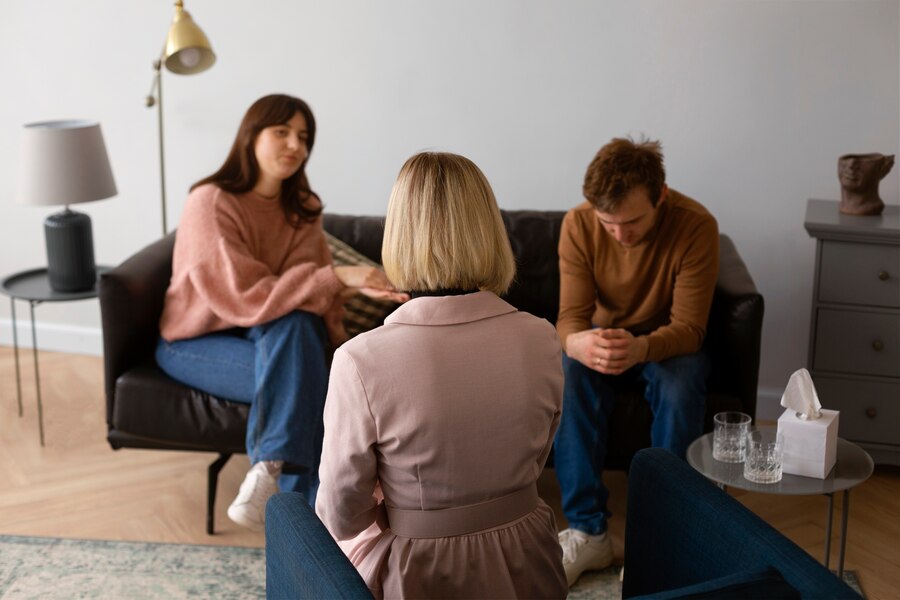
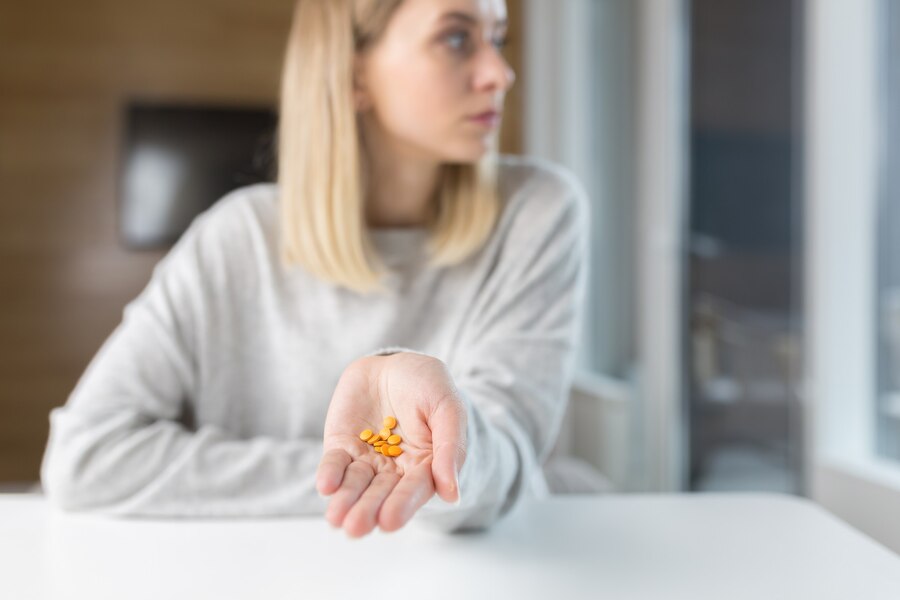




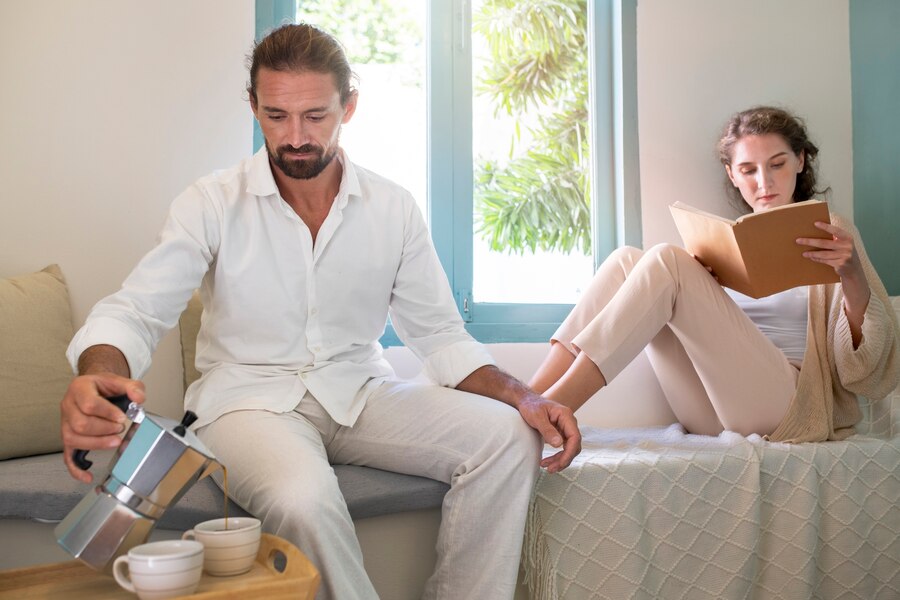









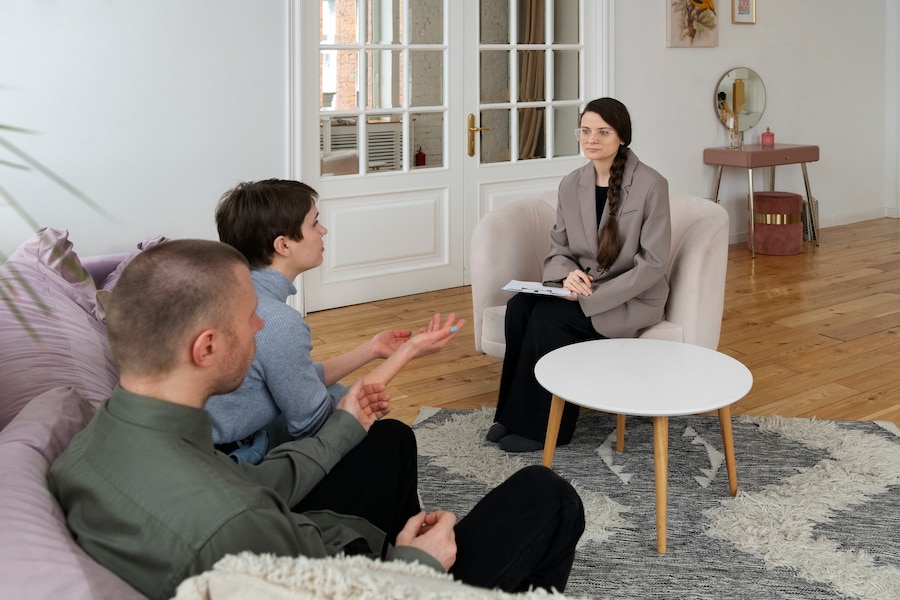

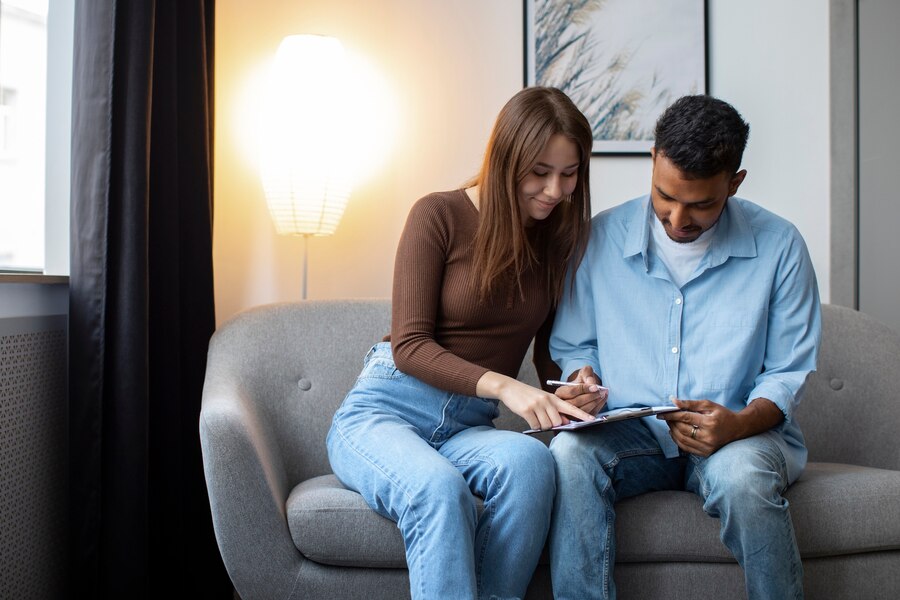
Recent Comments